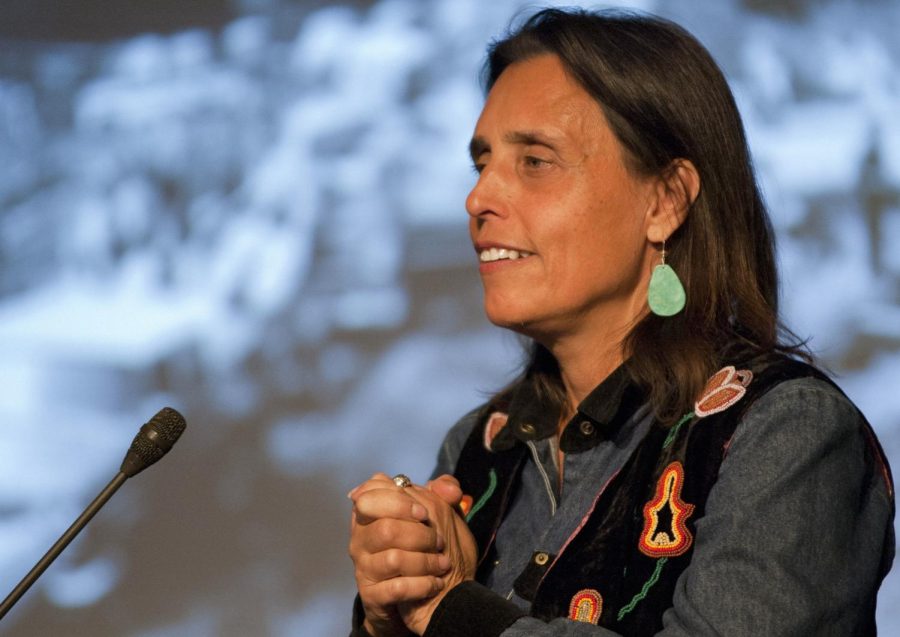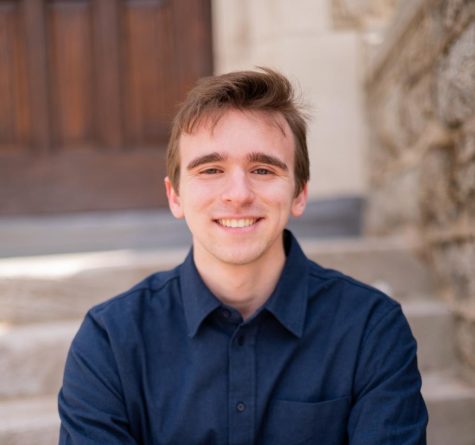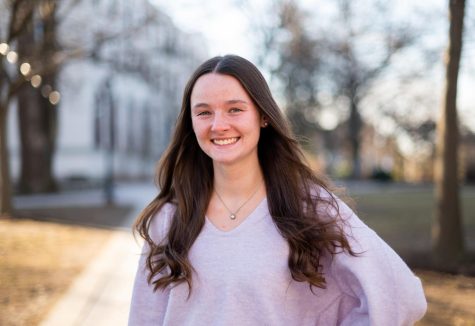Winona LaDuke Delivers MLK Keynote
Courtesy of The Speak Out Now Organization
Winona LaDuke spoke to Villanova students virtually on Jan. 18.
January 27, 2022
The University has hosted a Keynote Speaker to commemorate Martin Luther King Jr. Day every year since 2012. This year, Harvard graduate Winona LaDuke spoke virtually to Villanova students on Jan. 18.
An author of seven books, two-time Vice President candidate with the Green Party and climate activist, LaDuke brought a unique perspective to her lecture.
Introduced by University President Rev. Peter M. Donohue, O.S.A., Ph.D., LaDuke lives on the White Earth Reservation in Minnesota with her extended family, which partakes in a land-based way of life.
For her tribe, the land of northern Minnesota is not only home, but it is also sacred. This made it all the more important for her to take a stand when the Line 3 oil pipeline system was planned to head straight through the region. Throughout 2020 and 2021, LaDuke led protests against Line 3. The major police presence at the protest sites disturbed LaDuke. She drew a comparison between her protest experiences and those of Martin Luther King Jr.
“The Deep North is like the Deep South, except the victims are brown people instead of black people,” LaDuke said.
Last July, LaDuke’s trespassing on the construction site earned her three days in jail. Once again, LaDuke connected herself to King. LaDuke told the audience that, while much shorter in duration, her time in jail reminded her of the imprisonment of King and Nelson Mandela. Like them, she vowed to not be discouraged by her time in jail, but to be further motivated by it.
The Line 3 oil pipeline system is far from the only system constructed in the United States and Canada over the past few years that has the potential to contaminate the water supply. Back in 2016, massive protests accompanied the construction of the Dakota Access Pipeline. Of course, LaDuke was there as well.
LaDuke’s involvement in environmental protection extends far beyond simply protesting. During the lecture, she told the audience about The Sitting Bull Plan. The goal of the plan is to help society transition into a post-fossil fuel economy.
“We grow our food, we harvest our food, we take care of our land so we can eat,” LaDuke said.
On the White Earth Reservation, LaDuke and her family grow hemp, potatoes, squash and more to feed and nourish themselves. Encouraging a land-based lifestyle, LaDuke discussed her business, Winona’s Hemp and Heritage Farm. She explained in depth the uses of not only growing one’s own food but also the unknown practicality of hemp. With hemp, LaDuke produces paper, forest-related products, wood and textiles.
Additionally, LaDuke emphasized the importance of going solar during her talk on the Sitting Bull Plan. Using the Navajo Nation’s turn to solar power as an inspiration, she argued that the use of solar power is again beneficial as it uses our given land.
“Instead of reaffirming the rights of corporations…we are reaffirming the respect and love for mother earth,” LaDuke stated.
Concluding her talk, LaDuke mentioned her non-profit organization, Honor the Earth, which helps raise awareness about the Indigenous struggle for environmental justice.
Tim Horner, with Villanova’s Center for Peace and Justice, was then introduced to moderate participant questions.
During the question and answer period, LaDuke reiterated that to make a positive environmental change, the rights of the earth must always be valued over corporations, states or municipalities.
LaDuke encouraged students to become active in fighting for environmental and social causes, as she gave advice to the next generation.
“There’s no social change fairy,” LaDuke said. “Social change is made by people like us.”
LaDuke’s appearance attracted just shy of 300 participants. She motivated and energized students and faculty to understand issues pertaining to the environment and to then act on those issues for the good of mother earth.
“With good prayer and good minds, we can make good decisions,” LaDuke said.














